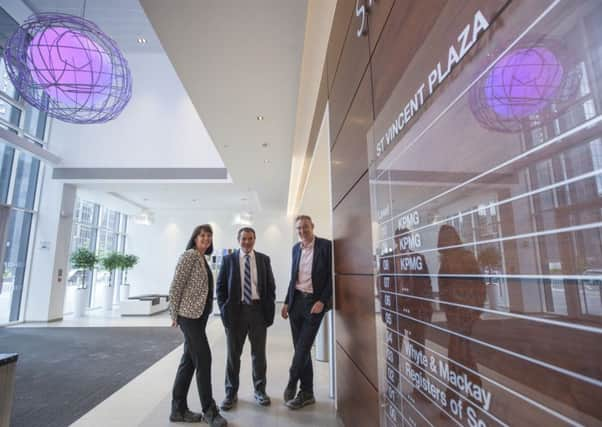Archie Blair: Finance bosses pull the property strings
This article contains affiliate links. We may earn a small commission on items purchased through this article, but that does not affect our editorial judgement.


From Indyref to Brexit, the commercial property sector in Scotland has seen a marked lack of stability and confidence, driven in part by these referendums, which has manifested itself in occupiers taking far longer to decide if now is the time to relocate offices and, in some cases, deciding not to move at all until they have more business certainty.
Change is everywhere as occupiers, developers and financiers all adapt to this new and more volatile landscape. This is not only noticeable in the decision-making process but also in terms of whose voice is now most influential in making these decisions.
Advertisement
Hide AdAdvertisement
Hide AdAs a developer of large-scale office buildings, we have traditionally done our business with the managing director or chief executive, with input from HR – in fact, HR input has rightly become more important as employers increasingly appreciate that attracting and retaining high-calibre staff is influenced by the quality of the working environment and facilities available within the workplace.
However, in recent years we have seen this dynamic adapt to the rockier climate with the key player in significant deals now often being the finance director (FD).
In a land of austerity, the bottom line is king – and the FD wears the mantle of key decision maker. Developers are therefore learning to tailor their offering – and their language – to understand and meet the objectives set by the new order.
To be absolutely clear, this doesn’t mean in any way that we should compromise on quality; we continually strive to meet and exceed industry benchmarks (top environmental credentials are a given), creating award-winning developments in the process. We continue to innovate and this has become ever-more important as we look to create new ways of meeting the FD’s criteria.
In doing this, our metrics and our language as a sector have begun to change – for example, we now talk in terms of operational cost per workstation; looking at rent, property rates and service charge costs and assessing these against occupational density. On our St Vincent Plaza development in Glasgow city centre, one of the UK’s largest speculative developments, now occupied by high-profile occupiers such as KPMG, the cost per workstation shows a saving of up to 37 per cent on similar grade A office space in the city, making this the most competitively priced new city centre office development in the UK – words that must be music to the ears of any FD.
The last three years have been challenging but not insurmountable and with challenge always comes opportunity, innovation and agility. In building what the FD needs, whilst creating offices where employees actually want to work (and which reflect an organisation’s stature and aspirations), the sector can take on austerity and win.
• Archie Blair is development manager at Abstract Securities, developer of St Vincent Plaza in Glasgow
